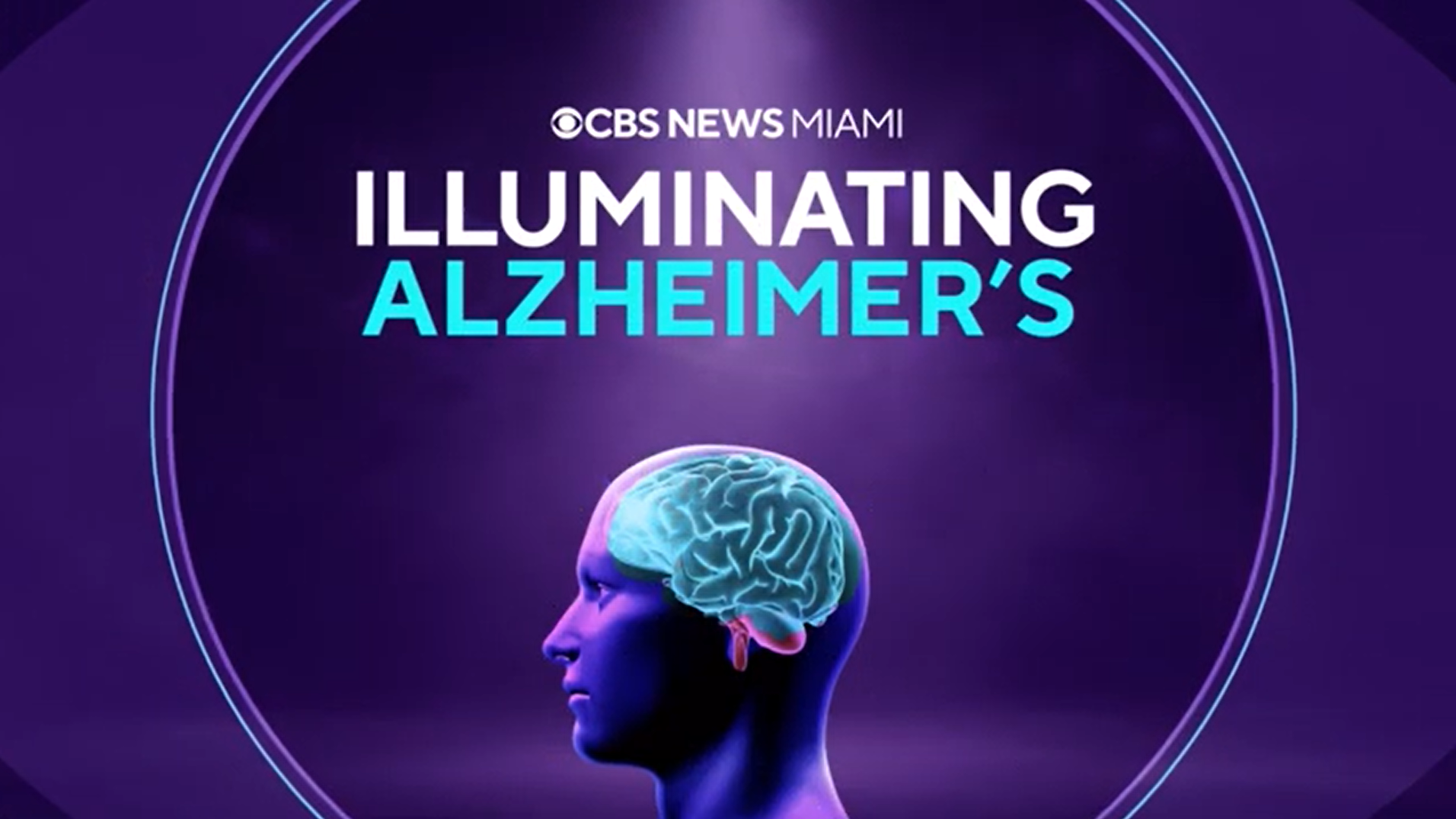June marks Alzheimer’s and Brain Awareness Month, a time to raise awareness about the importance of brain health and the work being done to help prevent, treat, and cure the disease.
On June 28, 2023, CBS News Miami ran a special called “Illuminating Alzheimer’s,” which shined a light on the devastating disease and the various forces coming together to offer awareness, education, and hope.
Across the U.S., more than 6 million people currently live with Alzheimer’s disease. Tomás R. Guilarte, dean of FIU’s Robert Stempel College of Public Health and Social Work, calls it a “public health emergency.”
"Illuminating Alzheimer's" included the impactful work being done by the Brain, Behavior, and the Environment program, a transdisciplinary initiative that unites the dynamic and diverse neuroscience community at FIU to create and empower research programs focused on environmental causes of neurological disease.
The special featured the work from Guilarte’s lab that targets the neuroinflammation protein TSPO to better understand the role it plays in the progress of Alzheimer's disease. It also highlighted the research from the lab of Jason Richardson, associate dean of research at Stempel College. In Richardson’s lab, researchers discovered how exposure to DDE, a metabolite of the persistent environmental pollutant DDT, can affect brain health.
"What we found was that if you were above a certain level of a very persistent pesticide metabolite called DDE, you were more than 4 times as likely to be diagnosed with Alzheimer's disease," shared Richardson with Lauren Pastrana, reporter for CBS News Miami. "They stay in the human body from years to decades. That particular metabolite we found associated with Alzheimer's disease, even currently, 95% of the population of the United States has detectable levels of them in the body.”
The special also included impactful stories of patients, caregivers, social workers, doctors, researchers, and fundraisers.

